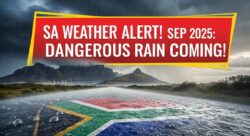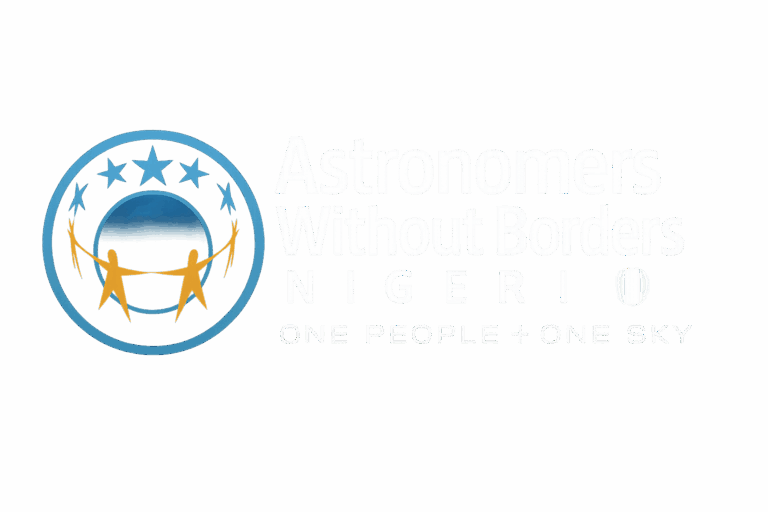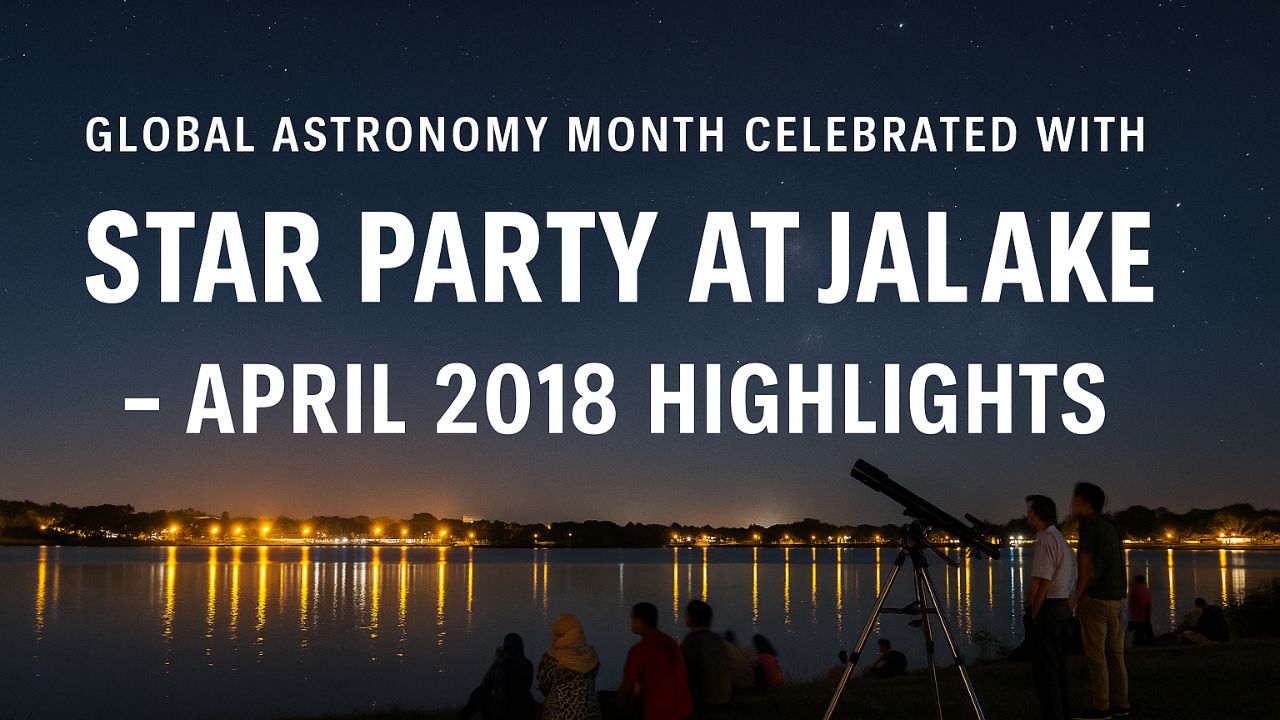Global Astronomy Month – In April 2018, Nigeria proudly joined the rest of the world in celebrating Global Astronomy Month (GAM) with a spectacular star party held at the serene Jabi Lake in Abuja. This unforgettable event brought science and community together under a shared sky, offering a unique blend of astronomy education, public outreach, and cultural celebration. Hosted by a coalition of local astronomy groups and supported by international partners like Astronomers Without Borders, the Jabi Lake Star Party stood out as a vibrant expression of how space science can inspire curiosity and unity across ages and backgrounds.
The event came alive just after sunset, when telescopes of various sizes lined the lakefront, ready to offer attendees close-up views of planets like Jupiter, Saturn, and Mars. Children squealed in amazement as they peered through eyepieces, while students took notes and photos of the skies above. Experts gave short talks on celestial navigation, light pollution, and African contributions to astronomy, while volunteers guided the public through activities like telescope building and constellation tours. The relaxed lake setting added a magical dimension to the evening, with families sitting on mats, sharing stories, and exploring the cosmos together.
Designed as both an educational and cultural event, the star party was part of a broader movement to raise awareness about astronomy and inspire young Nigerians to pursue science and technology careers. As interest in space grows across Africa, events like these not only inform but also empower communities to look up and reach for more.
 South Africa Weekend Weather September 2025 – Provinces Alerted of Dangerous Rain Conditions
South Africa Weekend Weather September 2025 – Provinces Alerted of Dangerous Rain Conditions
Massive Turnout and High Public Participation
The Jabi Lake Star Party became a magnet for science lovers and curious minds across the capital.
- More than 500 people attended the event
- Visitors included students, teachers, families, and local officials
- Over 10 telescopes were set up for public viewing
- Free astronomy kits and star maps distributed
- Photography contests and drawing stations for kids
Key Participants and Engagement Summary
Multiple organizations and individuals played a role in making the event successful.
| Participant Category | No. of Participants | Key Contributions |
|---|---|---|
| Local Schools | 8 | Student participation, science club demos |
| Astronomy Clubs | 4 | Telescope setup, skywalk tours |
| Government Officials | 6 | Opening ceremony, public speeches |
| NGO Volunteers | 15+ | Event management, material distribution |
| University Lecturers | 5 | Presentations, science education sessions |
| Parents and Families | 120+ | Active participation in kid workshops |
| Science Media/Bloggers | 10 | Coverage and live updates |
Youth Engagement and School Activities
School involvement was a major highlight, with multiple institutions participating in competitions and learning activities.
- Space-themed drawing competition for primary pupils
- Interactive planetarium walk-throughs
- “Name That Constellation” game session
- Career talk on astronomy and astrophysics
- Demonstrations on gravity and orbital motion
School Participation Overview
This table shows how different schools engaged with astronomy-themed activities.
| School Name | No. of Students | Activity Type | Materials Received | Instructor Name |
|---|---|---|---|---|
| Unity Secondary School | 40 | Planetarium Tour | Sky maps, star stickers | Mr. Hassan Adewale |
| Greenfield Academy | 35 | Telescope Building | DIY kit, instruction manuals | Mrs. Tina Umeh |
| Galaxy International | 50 | Space Careers Workshop | Booklets, posters | Dr. Omotayo Sanni |
| Future Leaders School | 30 | Drawing Contest | Art materials, notebooks | Miss Blessing Nwodo |
| Crown Model College | 25 | Solar System Modeling | Plastic planet sets, glue | Mr. Obinna Eze |
| Sunrise Scholars Sch. | 20 | Star Naming Game | Participation certificates | Mrs. Ruth Edeh |
| ScholarsVille School | 22 | Quiz on Space Facts | Stationery kits, badges | Mr. K. Ibrahim |
| Bright Horizon School | 28 | Sky Storytelling Circle | Flashlights, educational CDs | Mrs. Yemi Bello |
Observing the Cosmos: Night Sky Highlights
When the lights dimmed and the telescopes turned to the sky, the real magic began.
- Jupiter was clearly visible with its four largest moons
- Saturn’s rings were bright and unmistakable
- The reddish glow of Mars stood out in the sky
- Shooting stars created surprise moments
- Laser-guided constellation tours excited many first-time viewers
Celestial Visibility Log (April 2018)
Below are the most prominent astronomical objects seen during the event.
| Celestial Object | Time Observed | Visibility Level | Telescope Used | Remarks |
|---|---|---|---|---|
| Jupiter | 7:30 – 9:00 PM | High | 6″ Reflector | Io and Ganymede clearly spotted |
| Saturn | 9:00 – 10:30 PM | Moderate | 8″ Dobsonian | Rings were a visual treat |
| Mars | 8:00 – 10:00 PM | High | 4″ Refractor | Dust storm obscured surface slightly |
| Venus | 6:45 – 8:15 PM | Very High | Naked Eye + Binocs | Crescent phase noticeable |
| Pleiades Cluster | 8:30 – 9:30 PM | Low | 70mm Widefield | Slight cloud cover |
| Orion Belt | 7:45 – 8:30 PM | High | Laser Pointer Tour | Used for storytelling session |
| Meteors (Random) | 9:00 – 10:15 PM | Intermittent | Naked Eye | 3–5 meteors seen, short trails |
Institutional Support and Planning Partnerships
The successful organization of the star party was made possible by strong collaboration.
- National Space Research and Development Agency (NASRDA)
- Department of Physics and Astronomy, University of Abuja
- Abuja Stargazers Club
- Ministry of Education – FCT
- Astronomers Without Borders (Global Support)
Departmental Contact Details
For queries, volunteering, or collaboration, contact the departments below.
 September 2025 R12,500 Youth Grant – Application Window Open With Step-by-Step Instructions
September 2025 R12,500 Youth Grant – Application Window Open With Step-by-Step Instructions
| Department/Organization | Contact Person | Phone Number | Email Address |
|---|---|---|---|
| NASRDA | Engr. A.S. Bello | +234 803 123 4567 | [email protected] |
| Abuja Stargazers Club | Mrs. Chika Onwudiwe | +234 802 987 6543 | [email protected] |
| Ministry of Education (FCT) | Mr. Joshua Iduh | +234 701 222 8890 | [email protected] |
| University of Abuja – Astronomy Dept | Dr. Ifeanyi Okeke | +234 805 556 1122 | [email protected] |
| Astronomers Without Borders (NG) | Mr. Isaac Ogwu | +234 809 998 7744 | [email protected] |
Raising Awareness About Light Pollution
The event also served as a platform to educate the public on the environmental effects of urban lighting.
- Talks on the impact of light pollution on human health
- Educational leaflets on responsible lighting practices
- Night sky preservation pledges signed by attendees
- Demonstrations comparing LED types and their sky glow
- Calls for “Dark Sky Friendly” community zones in Abuja
Initiatives Proposed by Experts
During panel discussions, the following initiatives were presented.
- Legislation promoting shielded outdoor lights
- Encouragement of sky-friendly architectural design
- Astronomy integrated into civic planning policies
- Night Sky Education Week for schools
Why Reducing Light Pollution Matters
Too much artificial light not only affects astronomical observations but also disrupts wildlife and sleep cycles. Educating the public on dimming and shielding techniques plays a critical role in preserving our night environment.
Community Action and Youth Involvement
Students were encouraged to monitor local light levels using simple mobile apps and submit reports. School clubs were given DIY sky meters and monthly tasks to raise night sky awareness within their neighborhoods.
Outcomes and Statistics
| Event Element | Description | Notes |
|---|---|---|
| Total Attendees | 500+ | Largest recorded star party in Abuja |
| Schools Involved | 8 Total | Varied between primary and secondary |
| Telescopes Onsite | 10+ Different Types | Both refractors and reflectors used |
| Celestial Objects Observed | 7 Major Bodies | Including meteor sightings |
| Educational Materials | 300+ Kits Distributed | For students and teachers |
| Volunteer Staff | 40+ Individuals | From NGOs, clubs, universities |
| Media Coverage | 10 Outlets | Online blogs, TV, print |
| Feedback Forms Collected | 200+ Responses | 94% rated experience as “excellent” |
FAQs
Q1: Who organizes Global Astronomy Month?
A: It is led by Astronomers Without Borders, a global network promoting space education and outreach.
Q2: Is the Jabi Lake Star Party open to the public?
A: Yes, the event is free and welcomes individuals of all ages and backgrounds.
Q3: Do I need a telescope to participate?
A: No, telescopes are provided at the event, and guides are available to assist.
Q4: Can my school register in advance?
A: Yes, schools can pre-register with local organizers or the Ministry of Education (FCT).
Q5: How can I volunteer for future astronomy events?
A: You can reach out to Abuja Stargazers Club or NASRDA for upcoming volunteer opportunities.




